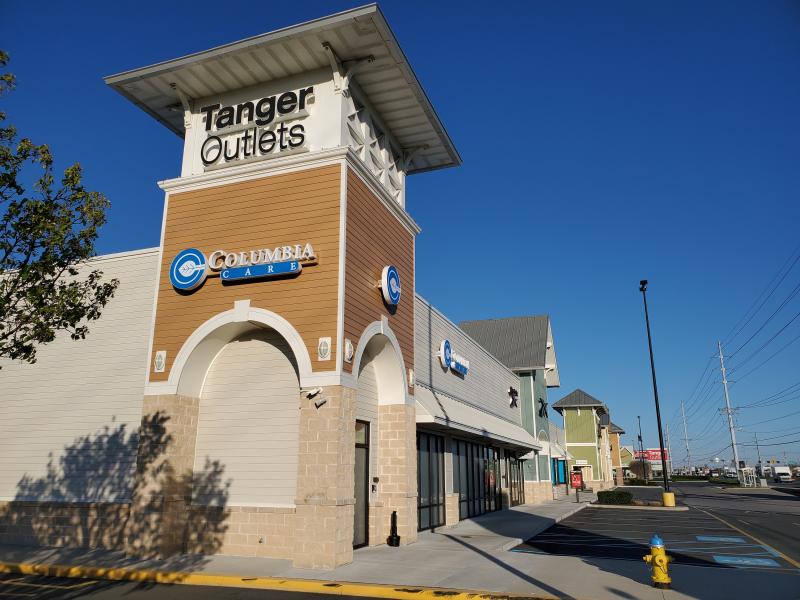Marijuana patient advocates against sale of Columbia Care
The recent announcement of the impending sale of medical marijuana provider Columbia Care has medical marijuana patient advocates saying it will only hurt the program.
Chicago-based Cresco Labs announced March 23 that it was buying New York-based Columbia Care in a deal worth approximately $2 billion. Columbia Care is the only vendor with a compassion center in all three counties; its Rehoboth branch opened in October 2019.
Zoë Patchell, Delaware Cannabis Advocacy Network executive director, said unlike mature markets on the West Coast, East Coast medical markets are dominated by well-funded and established multi-state cannabis operators. These operators overcharge patients, especially in limited-license states like Delaware where they have little options other than to purchase the overpriced cannabis, she said.
These companies then use their significant capital to fund the purchase of additional licenses and hire high-priced government affairs teams to lobby for protected first mover privileges, line-cutting advantages and limited competition in both medial and adult-use market, said Patchell. These privileges allow these large corporations to significantly increase their profits and gain competitive advantages to outcompete any new and especially locally owned, cannabis startups, she said.
“Cresco Labs acquiring Columbia Care is an example of ‘Big Marijuana,’ which is a product of both federal prohibition and states like Delaware that gridlock publicly supported legalization legislation that would allow local, small entrepreneurs and businesses to compete in the industry,” said Patchell, in an email April 5. “This represents everything wrong with the cannabis industry and is certainly not what longtime advocates and those who advocated before us have been fighting for.”
Delaware Office of Medical Marijuana Director Paul Hyland said he thought Cresco should help expand the company’s product menu. Many medical marijuana companies struggle with obtaining capital to expand and update facilities and equipment, he said.
Cresco Labs Inc. is a vertically integrated, multi-state operator and the No. 1 U.S. wholesaler of branded cannabis products operating in 10 states before the Columbia Care merger, said Hyland, adding that he has not met with the Cresco leadership because the merger is not complete.
In an email April 1, Jason Erkes, Cresco Labs chief communications officer, said, “We are very excited about the Columbia Care team joining us, and nothing will change at present, as it will probably take the rest of the year before we close.”
The leadership of the Delaware entities is not changing, so the permits will remain the same, said Hyland. All products that contain marijuana and the marijuana itself will continue to come from the Delaware growing center, he said.
Advocates also against bill terminating oversight committee
House Bill 356, introduced March 22 by Rep. Sherry Dorsey Walker, D-Wilmington South, would terminate the Medical Marijuana Act Oversight Committee, which was set up in 2015.
Lillyanne Ternahan, Delaware Cannabis Patients Coalition executive director, said the termination of the oversight committee will allow the medical marijuana program to operate without proper checks and balances, and without input from cannabis patients.
“The DCPC believes that the MMOC is necessary for improvements to the medical marijuana program,” said Ternahan, in a March 26 press release. “Its removal benefits the profit-driven dispensaries to the detriment of patients. How can we sunset this committee when the program is still not fully implemented and is still failing to meet patient needs?”
Hyland said should the committee sunset, patients will not see a difference in operations as a result.
“The Office of Medical Marijuana has continued to operate throughout the pandemic and through the recovery phase seamlessly,” said Hyland.
Due to robust public comment during oversight committee meetings, Hyland said it’s clearly in the interest of patients, advocates and compassion centers to continue to engage with his office on issues related to the medical marijuana program. The office will identify other forums for stakeholders to engage, he said.
Hyland said his office processed 1,775 applications and issued 1,700 cards in March, with the average patient applications being processed within one day. With sales at $11.5 million for the first quarter of the current calendar year, he said the industry in Delaware continues to do well and expand, while maintaining a surplus in production.
HB 356 was reported out of committee April 5.
Bill clarifies gun ownership for medical marijuana patients
Introduced in January by Rep. Andrea Bennett, D-Dover, House Bill 276 makes clear that an individual is not disqualified under Delaware law from possessing a firearm because the individual is a registered qualifying patient under the Delaware Medical Marijuana Act, if the registered qualifying patient is not a prohibited person.
“At least 36 states allow for the medical use of marijuana. However, federal firearms laws have not kept pace and currently prohibit an individual who is ‘an unlawful user of or addicted to any controlled substance’ from possessing or purchasing a firearm. It is still unlawful under federal law to use or possess marijuana,” reads the bill’s synopsis.
The bill has been released from the House Public Safety & Homeland Security Committee and is waiting to be brought forward for a full House vote.
Chris Flood has been working for the Cape Gazette since early 2014. He currently covers Rehoboth Beach and Henlopen Acres, but has also covered Dewey Beach and the state government. He covers environmental stories, business stories and random stories on subjects he finds interesting, and he also writes a column called Choppin’ Wood that runs every other week. He’s a graduate of the University of Maine and the Landing School of Boat Building & Design.






















































